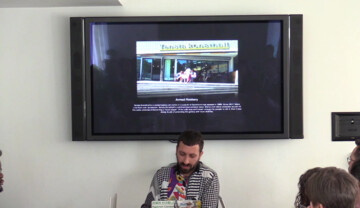As described in Merriam-Webster dictionary, in law, an intervenor is the one who intervenes as a nonparty in a legal proceeding.
I would suggest the idea of the “Intervenor” as an autonomous outside voice who nonetheless has the right to act within the art institutions. Intervenors could not only act within the walls of the white cube, but could also directly intercede when it comes to matters of communication, events, bureaucracy, administration, and even the office space itself.
It is not easy to talk about such an antagonistic position without putting it into practice. Let’s imagine how this would work:
Intervenors could be artists, art workers, cultural workers, or academics who aren’t normally part of the institutional decision-making mechanism, and who are aware of the sensitivities of the local context.
Intervenors would have an officially acknowledged agreement that protects their work from financial and political interference.
Intervenors would have a right to vet all forms of communication before they go public. This would include announcements, press conferences, events, and statements.
Intervenors would act in a time-sensitive manner, and would be flexible in times of crisis; they would not act according to preprogrammed agendas, concepts, exhibition schedules, or locations.
Intervenors could leave when it is no longer possible to challenge the limits of structural change.
Intervenors would be the protagonists who go beyond symbolic and harmless institutionalized critical agency. They would intercede if the institution reacted in an authoritarian or judgmental way to any public concerns.
But how could we know who should and could take such a responsibility? Meritocracy could be the answer, wherein individuals are appointed based upon their "merits", namely intelligence.



